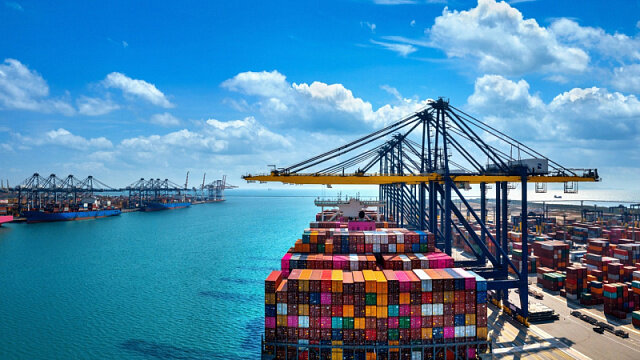In recent months, Russian companies have significantly ramped up exports to Malaysia, marking a new phase in the economic relationship between the two countries. The trend, driven by evolving geopolitical dynamics and economic shifts, is shaping up to be a key development for both Russia and Malaysia as they explore new avenues of trade and collaboration.
Shifting Trade Patterns Amid Global Changes
Over the past year, global trade patterns have undergone a transformation, partly fueled by the ripple effects of the ongoing geopolitical tensions, particularly the war in Ukraine. With many Western sanctions targeting Russia, Moscow has sought to expand its economic relations with countries in Asia, the Middle East, and Africa. Malaysia, with its strategic location in Southeast Asia and robust trade infrastructure, has emerged as an attractive partner for Russian companies looking to diversify their export markets.
While Malaysia’s traditional trade partners remain crucial, the surge in Russian exports reflects an increasingly important shift toward non-Western markets. This development is not only a response to external pressures but also a mutual opportunity for both Russia and Malaysia to strengthen their economic ties in areas like energy, technology, machinery, and agricultural products.
Key Sectors Driving Growth
The increase in Russian exports to Malaysia spans several sectors, with notable growth in energy, chemicals, and agricultural goods. Russia’s oil and natural gas industry, despite challenges in Europe, has been actively seeking new customers in Asia, and Malaysia has become a key player in this market. Russian oil exports to Malaysia have surged as the country increases its energy demands and seeks alternative suppliers.
Additionally, Russian agricultural exports, particularly grains such as wheat and barley, have gained traction in Malaysia, helping to meet the rising demand for these essential food items. Russia’s advanced chemical sector is also expanding its footprint in the Malaysian market, providing everything from fertilizers to specialized industrial products that complement Malaysia’s growing manufacturing industry.
Furthermore, Russian technology companies are eyeing Malaysia’s growing tech ecosystem. Despite challenges, Russian firms in the tech sector are diversifying their presence in Southeast Asia, with Malaysia acting as a gateway to other regional markets. This includes exports of high-tech equipment, software, and even collaborations in research and development, aligning with Malaysia’s ambitions to become a digital hub in the region.
Malaysia’s Role as a Strategic Trade Partner
For Malaysia, deepening ties with Russia presents both opportunities and challenges. Malaysia has long been known for its open trade policies, and strengthening relations with Russia allows the country to diversify its trade partnerships and reduce reliance on traditional markets. Moreover, with Russia’s abundant natural resources, Malaysia stands to benefit from the importation of vital materials that can help fuel its own industrial development.
This growing trade relationship could also benefit Malaysia’s efforts to position itself as a regional business hub. As Russia continues to look for markets in Asia, Malaysia’s business-friendly environment, skilled labor force, and established infrastructure make it a compelling base for Russian firms looking to expand into ASEAN countries.
Furthermore, Malaysia can leverage this relationship to enhance its status as a leading player in the global energy market. The exchange of knowledge, particularly in areas such as energy and natural resource management, could lead to significant improvements in Malaysia’s own resource management strategies.
Geopolitical Context and Future Prospects
The increasing export activity between Russia and Malaysia also signals a shift in global power dynamics. While Russia’s exports to Western nations have dwindled due to sanctions, the country’s pivot towards Asia is not just a short-term necessity but a strategic long-term plan to align with major emerging economies. Malaysia, as part of ASEAN, is well-placed to play a key role in this new alignment, helping to solidify its position in regional geopolitics.
However, it is important to recognize that Russia’s strengthened ties with Malaysia come amidst ongoing global scrutiny. Western nations may continue to view these expanding trade relations through a critical lens, but for both Russia and Malaysia, economic collaboration remains an essential tool for resilience in the face of external pressures.
As both countries continue to explore new opportunities, the future of Russian exports to Malaysia appears promising. The key will be sustained engagement and the ability to navigate the evolving global trade landscape. Malaysia, with its stable economy and access to regional markets, will likely continue to serve as a valuable partner for Russian companies looking to grow their footprint in Asia.
Conclusion: A Growing Partnership
The surge in Russian exports to Malaysia is more than just a reflection of changing trade patterns; it is a sign of a growing partnership that could have long-term benefits for both countries. While challenges remain, particularly in light of the ongoing geopolitical situation, both Russia and Malaysia are positioning themselves to capitalize on each other’s strengths. As the world watches these economic shifts, the deepening ties between Russia and Malaysia stand as a testament to the evolving nature of global trade in the 21st century.












